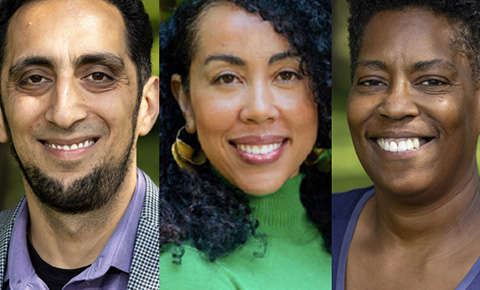Researchers to Study School Reform in Evanston

Northwestern University researchers received a five-year, $4.5 million dollar grant from the National Science Foundation to study racial equity, STEM education, and school reform in Evanston, Ill., a diverse suburb of Chicago.
The project is bookended by two contentious events: the closing of a neighborhood elementary school in Evanston’s historically Black Fifth Ward in 1967 and the district’s vote in 2022 to reopen a new K-5 school in the Fifth Ward as a form of educational repair. The school is set to open in fall of 2025.
The researchers will work closely with the Evanston/Skokie School District 65, the city of Evanston, Black families, as well as local community groups to ensure that students attending the new school experience rich, rigorous and culturally relevant STEM learning. One of the project's central goals is to help align efforts and programs between the district and Evanston, while maintaining a primary focus on the needs and priorities of Black families.
Lead investigators include Sepehr Vakil, associate professor of learning sciences in Northwestern’s School of Education and Social Policy); Nichole Pinkard, the Alice Hamilton Professor of Learning Sciences in the School of Education and Social Policy; and kihana miraya ross, assistant professor of Black studies in the Weinberg College of Arts and Sciences.
“It’s important to understand the history of educational injustice for the diverse Black community here in Evanston,” Vakil said. “In many ways, (the new school) is the culmination of decades of local advocacy and organizing by Evanston’s Black community. The reopening of the Fifth Ward school presents an opportunity to prioritize Black families’ expertise and aspirations while designing an ecosystem of STEM learning.”
Centering the community
The project builds on ross’s ongoing research with Black residents in Evanston, Vakil’s research on participatory co-design in the Technology, Race, Ethics, and Equity in Education (TREE) Lab, and Pinkard’s work designing educational ecosystems. The researchers will partner with Black community members and Black community organizations, to better understand Black families’ educational needs and desires.
Together, the team will try to create a research-community-practice partnership model that leads to more equitable and culturally sustaining STEM learning experiences, both inside classrooms and out of school for Black youth and their families.
Unlike traditional research-practice partnerships, which are usually between a school district and university, this project centers the community. Research community practice partnerships explicitly focus on what people from marginalized backgrounds know and believe, and they ensure these perspectives are at the core of their research efforts.
Until 1967, Foster School was the de facto segregated neighborhood K-8 school in the Fifth Ward. Foster was closed in 1967 to facilitate school integration; the school’s closure forced hundreds of Black families to bus their children to majority white schools in other wards of the city.
For more than five decades, many residents have lamented the loss of an institution that many elders described as the “jewel of the community.” Black community members have expressed anger, frustration, and sadness that their children have borne the entire burden of integration and they have continually fought to reopen Foster School.
While many residents support the idea of integration, they are clear that Foster School was special and that its closing was a significant blow to the community, according to Amplifying Black Voices research led by ross. In March of 2022, with the support of then superintendent Devon Horton, the Evanston/Skokie School District 65 Board of Education voted to reopen a public school in the city's historically Black Fifth Ward.
Meanwhile, Pinkard and ross are also members of a local committee focused on the educational implications of the first-of-its-kind reparations law that was passed in 2019.
Between the imminent opening of the Fifth Ward school and ongoing conversations about what ross calls “educational reparations”, Evanston is a dynamic context to investigate how Black communities and families, historically and in the present, are working towards STEM educational justice for Black children, both in and out of school, the researchers say.
“We want to know what the school design process looks like when you deeply engage the historical harm in a marginalized community,” Vakil said. “In this case, how does it impact the diverse Black population in Evanston when we reimagine a school that's aligned with their goals, values, and interests?”